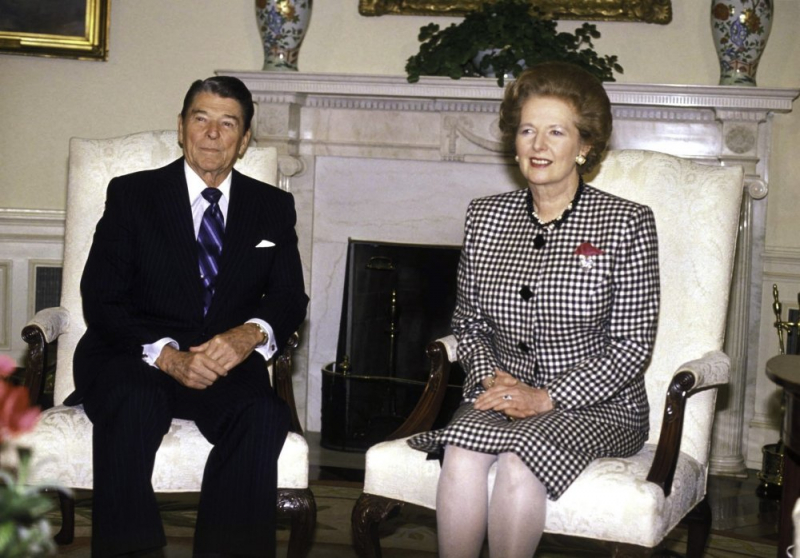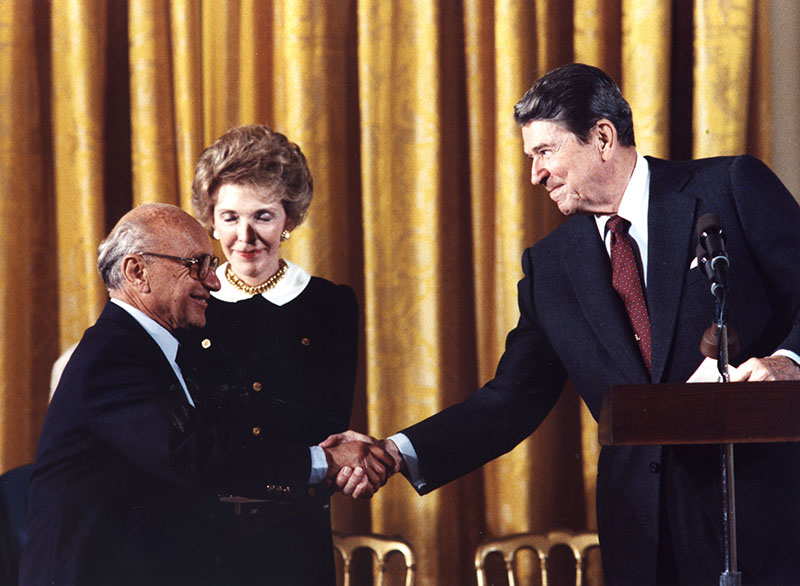Friedman served as an advisor to Republican President Ronald Reagan and Conservative British Prime Minister Margaret Thatcher
Friedman served as an advisor to Republican President Ronald Reagan and Conservative British Prime Minister Margaret Thatcher after retiring from the University of Chicago in 1977 and becoming an Emeritus professor in economics in 1983. His political philosophy praised the benefits of a free-market economic system with little government intervention in social matters. He once stated that his contribution to the abolition of conscription in the United States was his proudest achievement. Friedman advocated for policies such as a volunteer military, freely floating exchange rates, the abolition of medical licenses, a negative income tax, school vouchers, opposition to the war on drugs, and support for drug liberalization policies in his 1962 book Capitalism and Freedom. Because of his support for school choice, he founded the Friedman Foundation for Educational Choice, which was later renamed EdChoice.
He also believed that the government should not have undue influence over the economy and that there should be a cap. Friedman also thought it was a good idea to lower taxes, reduce government spending, and eliminate any regulations that hampered the economy.
In addition, while Senator Goldwater was running for President in 1964, he served as an informal economic adviser to him. In 1968, he played the same role for Richard Nixon, and in 1980, he played the same role for Ronald Reagan.









